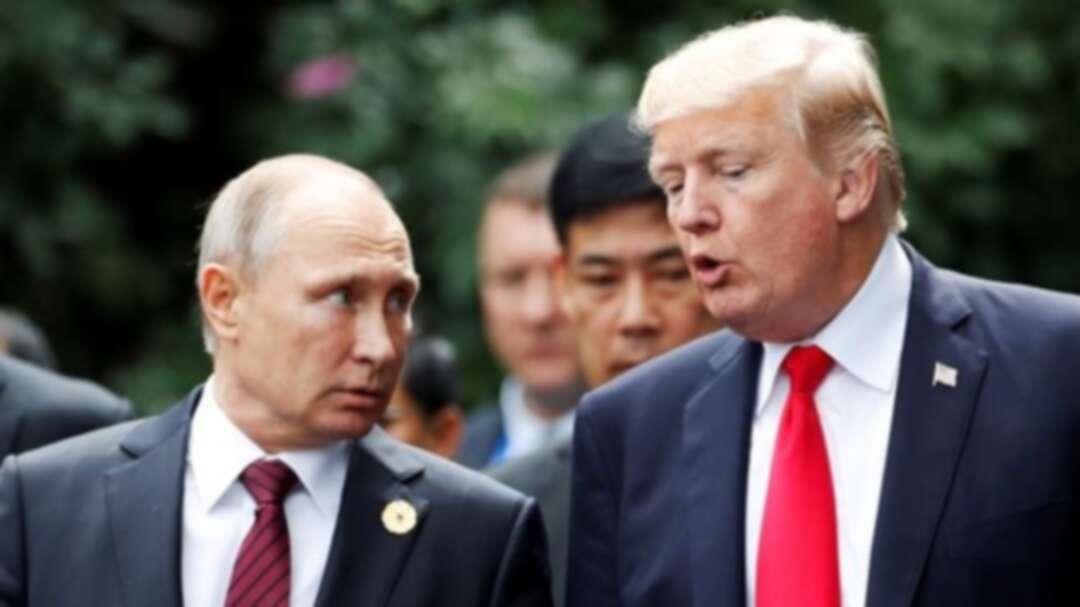-
US blames Russia for collapse of Cold War-era pact to limit nuclear arsenals

The US has blamed Russia for the collapse of a landmark arms deal designed to limit how much they can expand their nuclear arsenals.
President Ronald Reagan and Soviet leader Mikhail Gorbachev signed the Intermediate-range Nuclear Forces treaty three decades ago, but the modern day White House and Kremlin have shown no willingness to extend or replace it once it expires in 2021.
The US confirmed it would quit the agreement on Friday but has blamed Russia, claiming that Moscow has been in violation of its terms for years in its development and fielding of certain weapons.
US Secretary of State Mike Pompeo said Russia "is solely responsible for the treaty's demise", which comes amid concerns over a new, land-based, medium-range missile built in the country.
NATO said it would "respond in a measured and responsible way" to the "significant risks" posed by the weapon, with members having agreed upon a "balanced, coordinated and defensive package of measures"
Ahead of the move by the White House, Russian deputy foreign minister Sergei Ryabkov told Sky News that the country has started research and development on ballistic and cruise missiles of intermediate range capabilities, but that no such weapons would be deployed "unless the US does
He added that Moscow also considers the deployment of conventional missiles in Europe to be destabilising.
The collapse of the treaty means that there will be no legally binding restrictions on the two biggest collections of nuclear weaponry in the world for the first time in nearly half a century, prompting fears of a new global arms race.
The Trump administration has indicated that it will now counter Russia - and the emerging power of China - by increasing its own arsenal.
Donald Trump has also not committed to extending or replacing the more recent New Start deal, which began imposing limits on the number of US and Russian long-range nuclear warheads and launchers last year.
The US president has described it as "just another bad deal" signed by predecessor Barack Obama, and has suggested he would prefer to strike an arms control agreement that also included China.
Speaking on Thursday, he said: "We'll see what happens. I will say Russia would like to do something on a nuclear treaty and that's okay with me. They'd like to do something and so would I."
The Republican has withdrawn the US from a number of deals signed by previous administrations since he took office in 2017, including the Paris climate agreement and the Iran nuclear deal.
While Mr Trump has appeared relaxed about the demise of the 1987 treaty signed by Mr Reagan and Mr Gorbachev, its collapse has been met with concern in Europe.
German foreign minister Heiko Maas said it meant the continent was less secure.
"We regret the fact that Russia has not done what was necessary to save the INF treaty," he said.
"Now we call all the more on Russia and the US to preserve the New Start treaty as a cornerstone of worldwide arms control.
"Nuclear powers such as China must also face up to their responsibility on arms control - they have more weight in the world than at the time of the Cold War."
You May Also Like
Popular Posts
Caricature
BENEFIT Sponsors BuildHer...
- April 23, 2025
BENEFIT, the Kingdom’s innovator and leading company in Fintech and electronic financial transactions service, has sponsored the BuildHer CityHack 2025 Hackathon, a two-day event spearheaded by the College of Engineering and Technology at the Royal University for Women (RUW).
Aimed at secondary school students, the event brought together a distinguished group of academic professionals and technology experts to mentor and inspire young participants.
More than 100 high school students from across the Kingdom of Bahrain took part in the hackathon, which featured an intensive programme of training workshops and hands-on sessions. These activities were tailored to enhance participants’ critical thinking, collaborative problem-solving, and team-building capabilities, while also encouraging the development of practical and sustainable solutions to contemporary challenges using modern technological tools.
BENEFIT’s Chief Executive Mr. Abdulwahed AlJanahi, commented: “Our support for this educational hackathon reflects our long-term strategic vision to nurture the talents of emerging national youth and empower the next generation of accomplished female leaders in technology. By fostering creativity and innovation, we aim to contribute meaningfully to Bahrain’s comprehensive development goals and align with the aspirations outlined in the Kingdom’s Vision 2030—an ambition in which BENEFIT plays a central role.”
Professor Riyadh Yousif Hamzah, President of the Royal University for Women, commented: “This initiative reflects our commitment to advancing women in STEM fields. We're cultivating a generation of creative, solution-driven female leaders who will drive national development. Our partnership with BENEFIT exemplifies the powerful synergy between academia and private sector in supporting educational innovation.”
Hanan Abdulla Hasan, Senior Manager, PR & Communication at BENEFIT, said: “We are honoured to collaborate with RUW in supporting this remarkable technology-focused event. It highlights our commitment to social responsibility, and our ongoing efforts to enhance the digital and innovation capabilities of young Bahraini women and foster their ability to harness technological tools in the service of a smarter, more sustainable future.”
For his part, Dr. Humam ElAgha, Acting Dean of the College of Engineering and Technology at the University, said: “BuildHer CityHack 2025 embodies our hands-on approach to education. By tackling real-world problems through creative thinking and sustainable solutions, we're preparing women to thrive in the knowledge economy – a cornerstone of the University's vision.”
opinion
Report
ads
Newsletter
Subscribe to our mailing list to get the new updates!





















